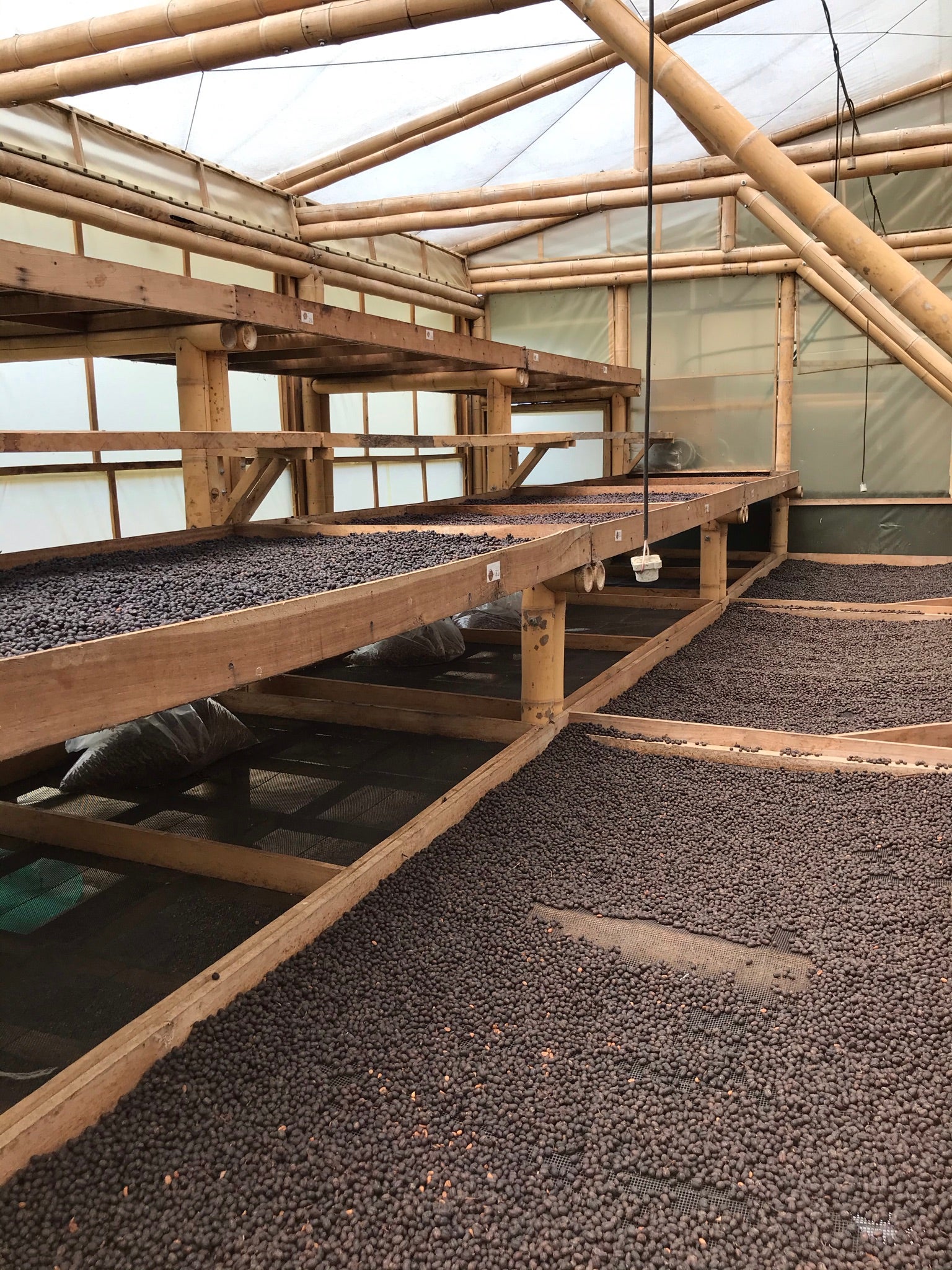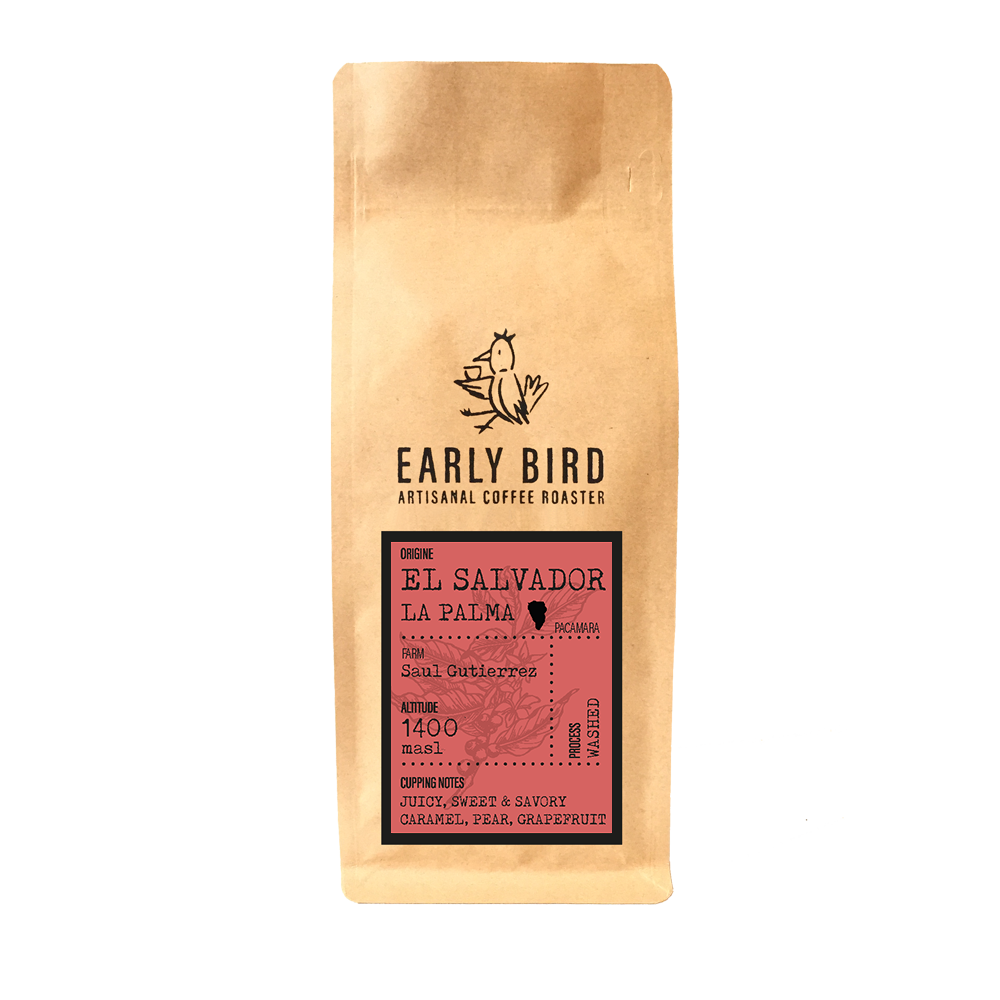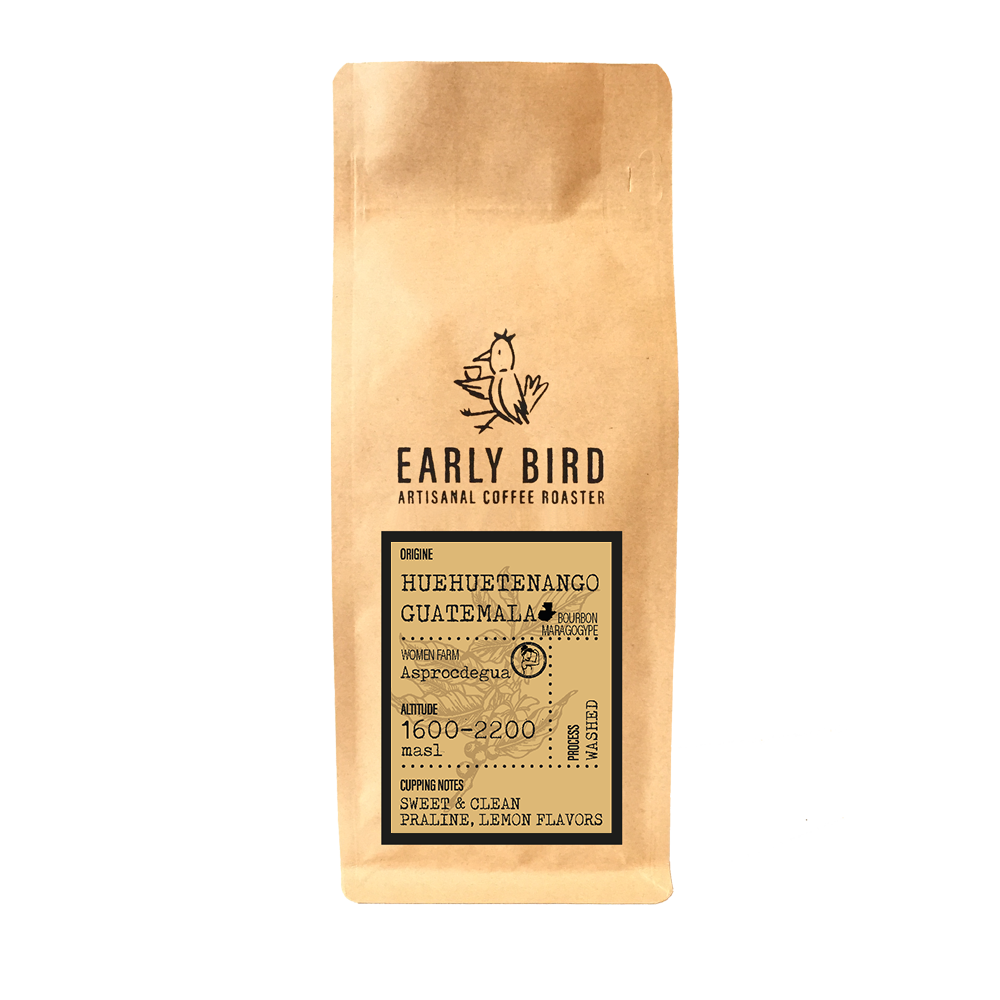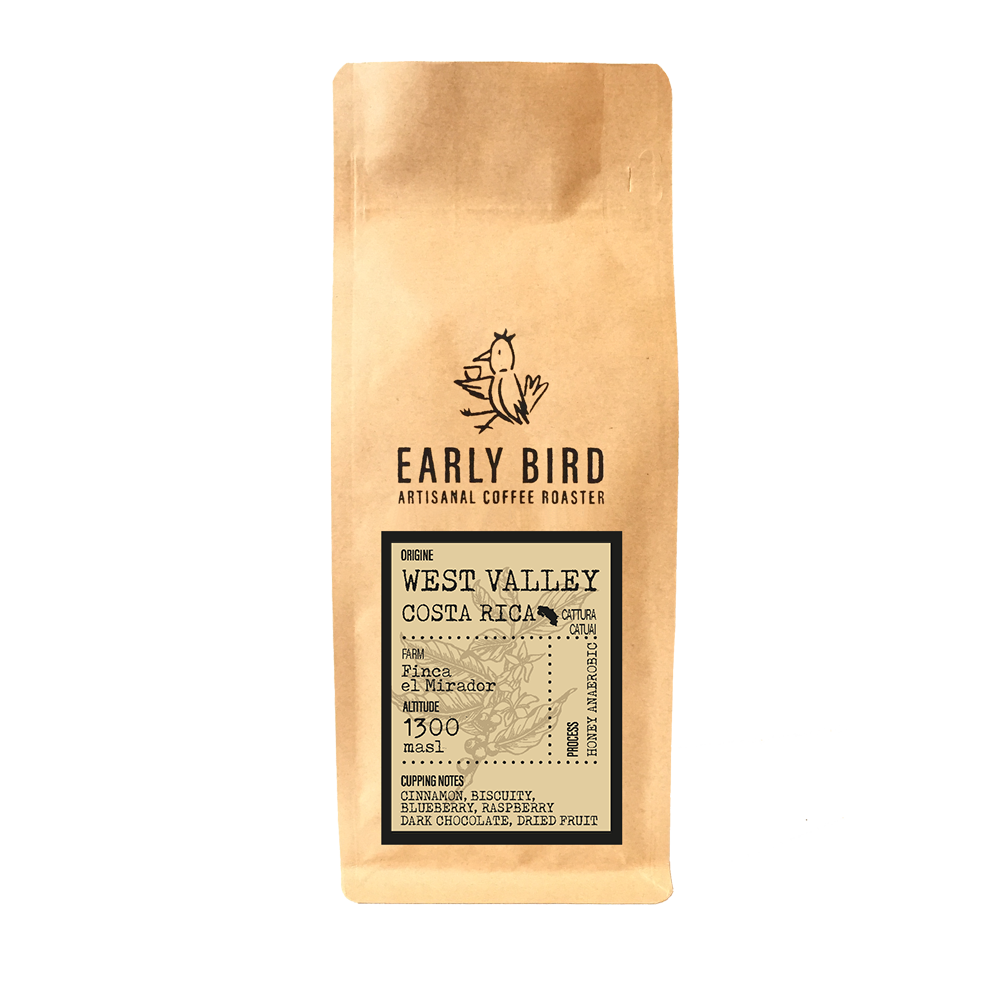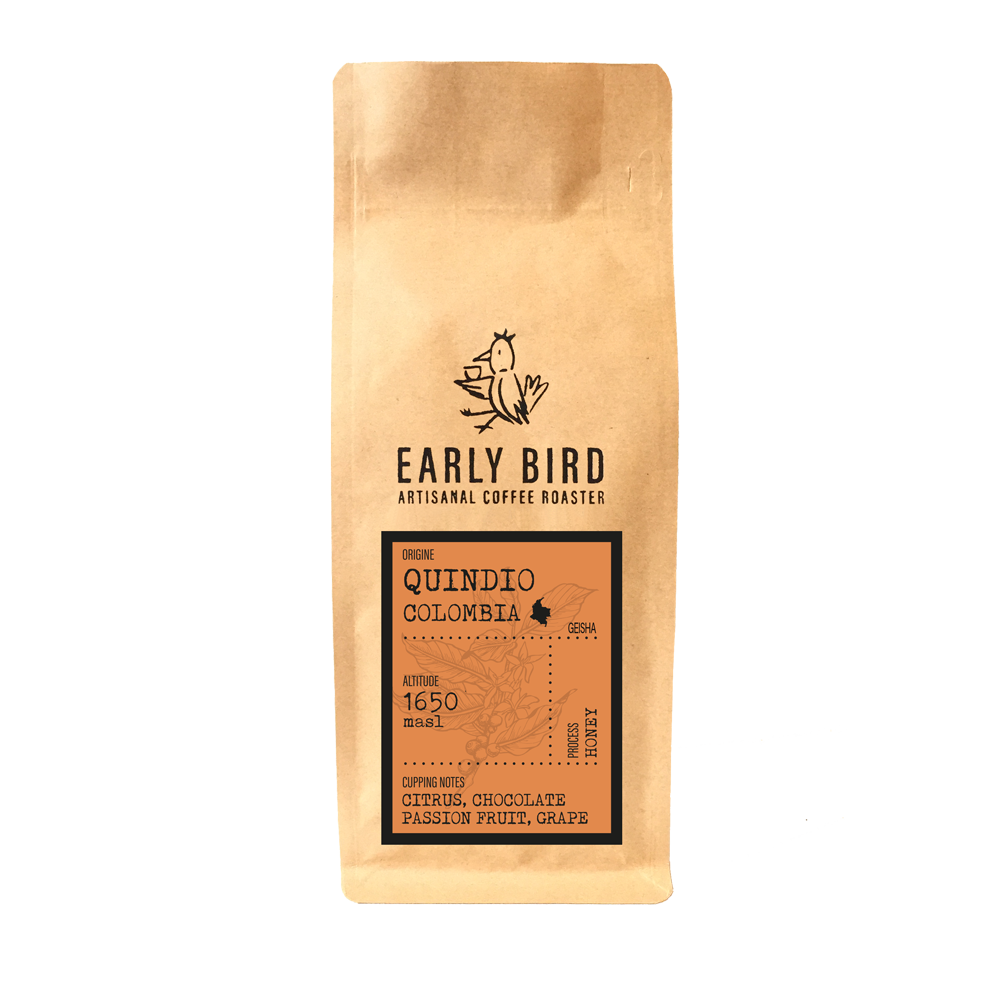
Colombie
Agrumes, Chocolat noir, Fruit de la passion et raisin. Complexe.
-
REGION
Quindio, Pijao
-
PRODUCTEUR
Lopez Family
-
VARIETE DE L'ESPECE
Arabica
-
VARIETE BOTANIQUE
Geisha
-
RECOLTE MANUELLE ET SELECTIVE
Year-round, depending on the region
-
ALTITUDE
1650 masl
-
TRAITEMENT
Honey
Experience the beloved Geisha profile in this Geisha Honey lot from the Lopez family. They have been cultivating coffee on Finca Puerto Alegre and Finca La Esperanza for over 3 generations and their experience combines with the renowned Geisha profile to create and complex, fruity and floral cup.
In 2014, 4 Lopez siblings – the grandchildren of Don Moises – took over the farm and began focusing their efforts on producing sustainable, specialty coffees. The siblings were later joined by several of their own children who have focused on innovative processing and ecotourism and today, the farm benefits from this multi-generational expertise.
Finca Puerto Alegre is divided into parcels that are located in the mountains surrounding the town of Pijao. The main plot sits in the foothills and has a stream passing through. The mill, lab and main house are all located on this plot. Several hectares of Java variety coffee are planted on this plot. Further up the mountain, the Castillo, Mocha/Moka and Geisha varieties are each planted on their own designated plots. The nursery is also located among these higher plots. Currently, they are cultivating several varieties of Bourbon seedlings, including a variety called Aji that originated in Southern Huila.
Coffee at Puerto Alegre is shade grown and has been since their patriarch, Don Moises, made the decision to maintain his shade cover in the 1970s, when many other producers were transitioning to full sun exposure. Although full sun generates higher yields, Don Moises was a strong believer in sustainability (before sustainability was a “thing”) and did not want to damage the environment with use pesticides and fertilizers for higher yields.
Today, Leucaena (river tamarind) is the main shade tree planted on the farm. The tree’s roots fix nitrogen and, since it sheds its leaves every 3 months, a great source of biomass for producing organic fertilizer. This periodic shedding also reduces pruning costs.
Due to weather patterns, Finca Puerto Alegre produces coffee year-round. The Lopez family fertilizes and prunes trees on a regular schedule to keep plants healthy and productive.
Their careful attention to cultivation is complemented by equally-attentive processing. Jairo, the second youngest of the 4 brothers, was trained as a civil engineer and has applied his knowledge to improving processing methods at Puerto Alegre.
Jairo believes that standardization is key. Each lot receives a “birth certificate” that documents and maintain traceability throughout processing. They record the usual basics – variety, processing method, weight, plot, date picked – and additional fermentation information – time fermentation starts and ends, pH of the sample at different stages and more – to make the method as repeatable as possible.
Cherry is selectively handpicked. In the field, pickers use a refractometer to ensure cherry is a peak ripeness when picked. Cherry rests overnight and is then analyzed again to ensure Brix content is still within optimal range. Cherry is pulped and laid with mucilage on raised beds in parabolic driers. Jairo keeps careful track of the temperature within the drier and uses ventilation to control temperature and humidity to ensure even drying. Cherry is raked frequently to ensure even drying. It takes approximately 15 to 30 days for cherry to dry.
Colombia has been producing and exporting coffee renowned for their full body, bright acidity and rich aftertaste, since the early 19th century.
Colombia boasts a wide range of climates and geographic conditions that, in turn, produce their own unique flavors in coffee. This also means that harvest times can vary quite a bit. In fact, between all its different regions, Colombia produces fresh crop nearly all year round.
The increasing focus on the specialty industry is changing the way traders and farmers do business. It is becoming more common for farmers to isolate the highest quality beans in their lots to market separately. These higher-quality lots are often sold under specific brands or stories.
Besides its wide variety of cup profiles, Colombia has quickly expanded its certification options over the past 10 years. The most common certifications available are Fairtrade, Rainforest Alliance, UTZ and Organic
